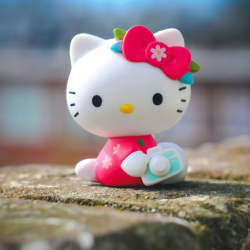When did I first begin to think of myself as living through a ‘Golden Age of Conflict’?
Probably around the time I stumbled upon a food loving celebrity’s Instagram post, a harmless upload featuring nothing but home-made summer rolls, and realised that there were battles brewing in the comments underneath. Some followers alleged that the summer rolls were in fact spring rolls, others that the celebrity (who has spoken at length about her Asian heritage and roots) had undermined a complex culture by using a catch-all term to describe a very specific aspect of a specific country’s culinary heritage. There were other people insisting that the summer rolls were actually just summer rolls and that everyone should calm down; that appropriation, racism, reverse-racism — take your pick — were at play.
We were barely past the first wave of the pandemic. Scrolling through the sarcasm and snark, I realised that the months long (and soon to grow longer) lessons in isolation and collective responsibility had, in fact, amounted to very little. This was a random but telling indicator of how we wanted to make our stand — taking offence and giving it, with almost no reference to context, all of us becoming gladiators on our phones and in our pyjamas.
So much has happened since…
Wars have ended and others grind on, the pandemic is finally ‘over,’ political debate has shifted away from the centre, activism continues to remain a resilient force that changes the world for the better. People are vocal about what they think and how they feel — on campuses, in courthouses, in conversations and definitely in comment sections. Algorithms confirm what we already believe and create loose ties with others who share those beliefs. Surely there hasn’t been a better time for any of us to fight for what we believe in?
But I’ve long suspected that combativeness feels easy because connection feels so hard.
This seems like an absurd thing to say. After all, in spite of many profound inadequacies in access and awareness, we’ve simply never had as many tools to improve and enhance our well-being as we do today.
Governments have ministers tackling loneliness and aim to achieve happiness ‘targets.’ Mental health is beginning to take its rightful place in the policy-making mainstream, getting mentioned in both budget speeches and protests; social media is bubbling with influencers exhorting us to step away from screens; Brene Brown, whose vulnerability research resonated globally, can point followers to rigorous NYTimes bestsellers, as well as easy viewing Netflix specials.
Therapy is finally emerging from the shadows, and is potentially even cool. Op-Eds and H.R. encourage us to actively seek out health and healing. For those of us who cannot (or do not) have recourse to actual experts, there are celebrities and lifestyle gurus instructing us in how to set and maintain boundaries, identify our attachment styles, lean into self-care, steer clear of toxicity, embrace our needs and desires. It’s the kind of openness that should catalyse richer relationships.
But this pop cultural spotlight conceals a crucial contradiction
Contemporary and trending healing ‘journeys’ and ‘quests’ are almost always individual pursuits. Therapy speak (the percolation of diagnostic language into ordinary conversations) is everywhere. While that has its advantages, it also means that in the absence of nuance and guidance, we feel newly equipped to label and judge. Not only do we have words to describe precisely how other people make us uncomfortable, but we also have new ways in which to excuse less-than-ideal instincts in ourselves.
Fuelled by memes and TikToks, it has become easier to insist that our loved ones embrace us at our worst, while our commitment to boundaries protects us from having to extend the same courtesy to them. It can feel dignified and brave to stand up for yourself in this way, and it often is. But there’s also the tiny rush from channelling a little Main Character Energy, from perceiving oneself as a particular kind of protagonist in one’s own life. Eventually, these decisions become virtuous loops that feed themselves. Who can argue against your self-actualisation without coming across as selfish and unreasonable?
When this Instagram version of empowerment combines with deeply polarised politics and products and services marketed by an aggressive wellness industry, we’re encouraged to turn inwards, to retreat from the mess and friction of relationships and civic life into a space that’s much more curated, comfortable and most importantly, convenient. Remember a Twitter user’s controversial post asking people to ‘Use Uber, save a friendship?’ Thousands of people agreed that helping out a friend eats into their schedules.
And thousands asked the obvious question — if you can’t seek out a favour from a friend, what can you rely on them for? So it seems there is some hope for a slow and steady counter-argument to healing as a lifestyle and self-care as individualism in action. But it will take a while for the tide to turn.
As we’ve all had to learn, the people in our lives complicate things at least as often as they simplify them. For good reason, too many of us find it easy to believe that fewer, more selective and more carefully managed connections help us take better care of ourselves.
But what’s easy isn’t always true, and any healing journey worth its salt requires us to struggle with and absorb truths about ourselves in relation to others. Until then, there are wars to be waged over spring rolls, summer rolls and egg rolls <insert eye roll>.
Featured image: Kamaji Ogino / Pexels




























